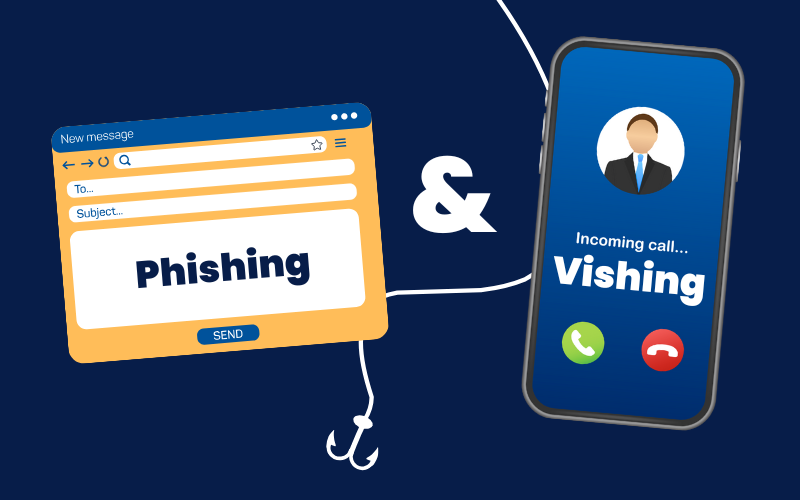
Phishing and Vishing: How to Spot and Avoid Scams
Phishing and vishing are two of the most common online scams that can compromise your personal information and security.
Phishing typically occurs through email, where fraudsters pretend to be a trusted entity like your credit union or bank, a government agency, or even a family member. They often include a sense of urgency—like a "limited time offer" or a warning that your account will be locked—to trick you into clicking on a malicious link or disclosing confidential information.
Vishing, on the other hand, involves phone calls where the scammer impersonates a legitimate company or organization. They might ask for personal details or even request that you provide remote access to your computer or phone.
Here’s how you can protect yourself:
- Never click on links in unsolicited emails or text messages: Hover over links to check the URL before you click, and always be cautious about attachments.
- Verify the sender: If you receive an unexpected email or phone call, verify the request through official channels. Don’t respond directly to the message or call.
- Look for red flags: Scammers often use generic greetings like “Dear customer” instead of your name. They may also ask for information that your bank would never request over email or phone.
- Be careful with phone calls: If you’re unsure about a call, hang up and call back using a number from the official website or your account statement.
At Empower Federal Credit Union, we take your security seriously. We offer enhanced security features like two-factor authentication (2FA) and voice authentication to protect your online banking experience.
Remember: If you ever receive communication that seems suspicious, reach out to us to confirm its legitimacy. Staying aware is the first course of action in protecting yourself from fraud.
